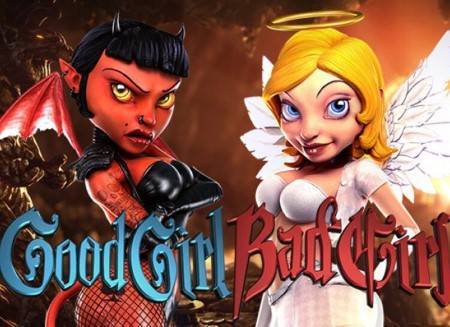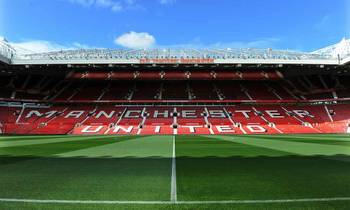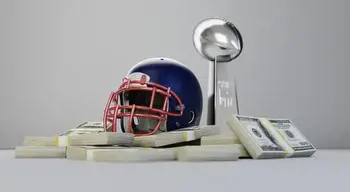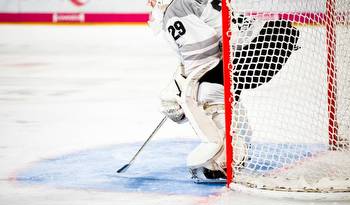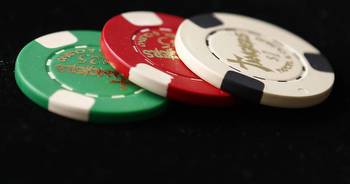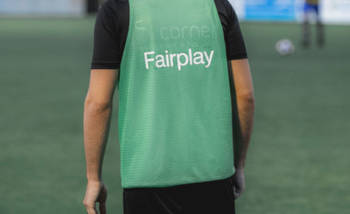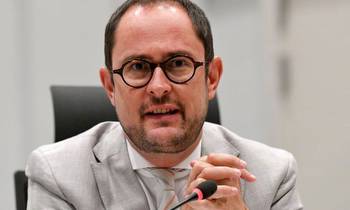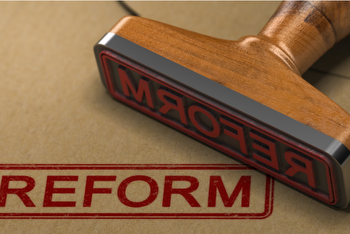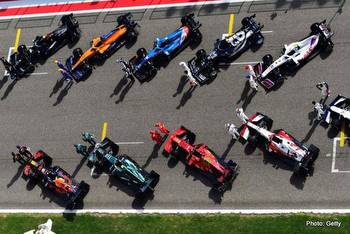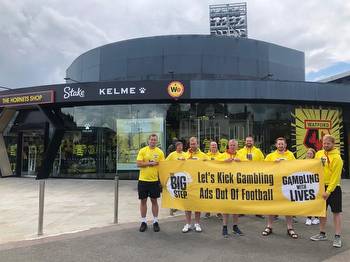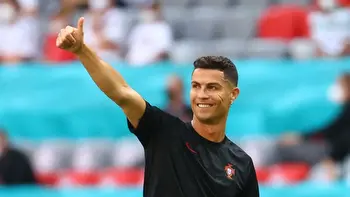Does rugby league have a gambling problem?

It was Easter 2004, and two of Britain’s top rugby league players stumbled upon one of the best betting opportunities of all time. Ahead of the top-of-the-table clash between Super League giants Bradford and St Helens, Sean Long and Martin Gleeson discovered that one of the sides would be fielding their reserve team. With the bookmakers anticipating a close game, the pair placed large bets on St Helens to lose by 9 points or more. In what the BBC described as a “a one-sided and hugely disappointing match”, Bradford won 54-8 and the pair picked up over £2000 in winnings.
There was, however, just one problem. Long and Gleeson were St Helens players and had placed the bet on their own side to lose. Within days of collecting the cash, the Daily Mail investigative team discovered the story and plastered it all over the back pages. Long was doorstepped at his home in Wigan, giving a publicity-shy sport its most notorious headlines in a generation.
The betting “scandal” triggered a debate within the sport about players’ links to the betting industry. As a result, rules on squad announcements were changed, and the RFL opened a hotline for players to anonymously disclose information about the scale of the problem.The following year, clubs “shied away from a potentially controversial title sponsorship with an online poker business” to any further damage to their brand. By 2012, clubs still wanted to pursue a more “ethical” sponsorship policy. The game famously turned down a multi-million-pound offer from Betfair in favour of a “cashless” deal with the haulage firm Stobart. In a sport short on money at the best of times, it turned out to be a financial disaster.
The Blair Government wanted to unshackle the gambling industry
In the decade since the Stobart deal, rugby league has radically altered its stance on gambling sponsorship. As the game has sought different structural ways of turning its fortunes around, bookmakers have been its financial saviour. It began with the arrival of Ladbrokes and Coral but has accelerated through the Warrington-based firm Betfred. Faced with declining broadcast revenues, Fred Done — the self-styled “bonus king” — has stepped in to fund the game. And their domination of rugby league landscape is absolute. The Betfred Super League sits on top of Betfred Championship and Betfred League One, with the Betfred Challenge Cup as the premier knockout competition. More widely, Betfred is the title sponsor of the growing Women’s Super League and the Betfred Wheelchair Super League.
The influence of one sponsor over an entire sport means that however fans choose to watch — whether it is men or women, professional or amateur, in Cornwall or in London, Wigan, Leeds or Newcastle — they constantly come into contact with Betfred advertising. Whether it is on the side hoardings, pitch markings, corner flags or across the various TV brandings, Betfred is across it all.
Whilst Betfred’s sponsorship of the domestic competition has grown, the international game has historically been able to develop different types of sponsors due to its higher profile. That tradition changed last week when Betfred was unveiled as the main shirt sponsor of the England national side for the home World Cup this Autumn. With the tournament able to reach audiences well beyond club supporters, Betfred will be the first sponsor millions of people see when they turn on their televisions in the hope of an England triumph.
Rugby league’s decision to fully embrace betting advertising comes at a crucial moment for the future of the industry. The government recently launched a review of gambling laws amid mounting concern over addiction and children’s exposure through advertising in sports products. The aim is to reassess Labour’s controversial Gambling Act of 2005, which radically altered how betting companies marketed themselves.
Back then, the Blair Government wanted to unshackle the gambling industry from outdated legislation which still restricted the number of shops, casinos and fruit machines in each region. Seeing it as an opportunity to flex free-market credentials, Tessa Jowell, the Minister responsible for bringing in the changes, claimed that opponents of her reforms were “snobs” who simply found casinos to be “gaudy and in poor taste”. But because much of the media and parliamentary scrutiny was focused on the new “super casinos”, the changes to bookmaking went by almost unnoticed.
Previously bookmakers had to prove sufficient demand to develop a new shop on the high street. But, as the Guardian warned at the time, Jowell’s legislation meant that “there is now little to stop bookies opening up as many shops as they believe the market can take”. Jowell would later acknowledge that the changes had “blighted London streets”. But for the treasury, it has proved to be extremely lucrative. The industry is now worth over £14bn, with a tax intake amounting to around 0.6 per cent of central government revenues.
One of the biggest changes emerging from the Act was the freedom for firms to advertise and enhance in-play betting. The boom, spearheaded by adverts featuring celebrity endorsements from José Mourinho and Ray Winstone, has helped push betting into the mainstream. But as one RMN mental health nurse has been documenting on Twitter, stories of the impact of addiction are never far from the media.
For Tom Fleming, the Communications Manager at Gambling with Lives — which is leading a campaign to change the legislation — sports are a way for firms to “normalise gambling and make gambling companies household names by exposing fans and young people to them”. But while much attention is placed on the impact on our national game, rugby league has not even begun to have a debate about the effect.
Rugby league administrators are keen to argue that Betfred’s positive influence goes well beyond their financial support. RFL Chief Executive Ralph Rimmer posed with Betfred owner Fred Done at the launch of the new England jersey last week. He told the media that Betfredis the “perfect partner” for a home World Cup that he believes will be the most “diverse” ever seen. But the challenge Rimmer faces is the one that the leaders of the game have always faced: how to square creating a different image for the sport with the need to bring in hard cash.
In the 1970s and 80s, the sponsors who aligned themselves with rugby league fitted its image as the sport of the industrial manual worker. Cigarette brands such as State Express, JPS, Embassy and Silk Cut pumped millions into the game. Northern breweries such as Whitbread, Stones, John Smith’s and Tetley’s aligned their brands to the game while British Coal embodied the link with coal communities across the North. Yet while the game needed to move beyond those sponsors eventually, the sport has never been in a position where one sponsor has dominated every division and every cup it can sell.
One of the main aims of the switch in the summer of 1996 was to diversify its corporate sponsors and bring new supporters on board. National brands such as JJB Sports, Kellogg’s and Powergen all bought into the changes, while the national side attracted the support of British Gas, Gillette and Guinness. When, in 2004, the finance company Engage came on board, it was seen as a significant symbol of change: “It is no surprise,” argued the RFL Chief Executive Richard Lewis, “that is a financial services company.” It reflected how the sport had “moved and is positioning itself very deliberately and professionally”.
Bookmakers predominantly grip the sponsorship of the game
Rugby league supporters should question how the sport ended up putting the entire house on Betfred, just as other sports are moving in the opposite direction. Crystal Palace recently became the first Premier League club to remove a gambling sponsor with clubs expected to agree to a voluntary ban on shirt sponsorship soon. The FA has already cut ties, while those who continue to pursue deals, such as Sunderland in the Championship, have faced backlash from supporter groups. Legislation is changing in Spain and Holland, while in Australia, where the problem is arguably worse, two NRL teams have committed to “challenge the idea that betting is a normal part of sport” through the Reclaim the Game programme.
Rugby League is not yet ready to be part of the discussion about what happens next. England head coach Shaun Wane — the man tasked with selling the team to the nation this year — was frank when he admitted that without Betfred, “we would struggle” as a sport. Wane believes the sport is so indebted to Betfred that he has promised to dedicate a World Cup win to Fred Done: “Hopefully, if we can do something this World Cup, it will be for Fred,” he recently said. Others have gone further. The owner of Leigh Centurions recently argued that French supporters offer less to the game because they “can’t use Betfred”.
Nobody doubts Betfred’s millions have helped sustain the sport through the pandemic. Whilst it is inevitable that rugby league would partner with a bookmaker for some sponsorship, there is a trade off when it is so dominant. Jon Dutton, the organiser of the World Cup, recently announced that there will be “many similarities with the women’s Euros” this autumn with games having a “festival” atmosphere and “celebration”. In many ways, rugby league does generate a similar atmosphere at its major events with more women, young children and families in attendance than at other sports. But as one person who attended the Euro’s final this week pointed out, one of the most refreshing aspects of the game was the absence of gambling sponsorship in the ground.
Rugby league’s success this autumn rests upon whether it can bring in new audiences to the sport who would not normally watch a domestic game. Part of that means connecting the players with the country and developing an image of the game within the wider sporting consciousness. Rugby league, like the Lionesses, is not blessed with ready-made celebrities and mega stars. But it does have down-to-earth players rooted in their communities. When the COVID-19 crisis hit, players were at the forefront of the organisational response in their towns, from coordinating welfare checks and running foodbanks to raising money for NHS services. This is a game with values that other corporate sponsors should be eager to align themselves with.
For now, it is the bookmakers that predominantly grip the sponsorship of the game. Recently, the pollster Survation found that a third of football supporters would not buy their team’s shirt if it had a gambling logo on it. England fullback Sam Tomkins believes that if England wins the World Cup, “every kid” will want to buy the replica jersey. But the restrictions in place on advertising to children mean that they will not be able to buy the same branded shirt as their heroes.
In October, when the World Cup kicks off in Newcastle, betting adverts featuring celebrities and sports stars likely to appeal to children will be banned by the Committee for Advertising Practice. The tide is clearly beginning to turn away from Labour’s liberal gambling reforms. As rugby league continues headfirst in the opposite direction, supporters may wonder whether the sport has backed the right horse.







